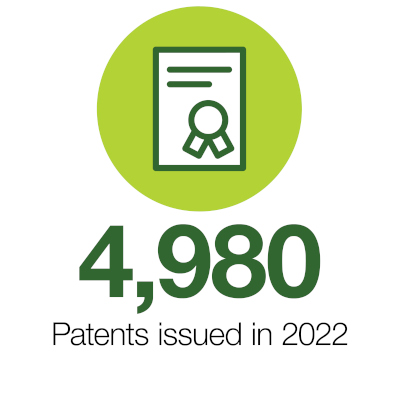 AAU Institutions Among Top Producers of Fulbright Students and Scholars
AAU Institutions Among Top Producers of Fulbright Students and Scholars
Last week, the State Department recognized higher education institutions in the United States that have produced the most Fulbright students and scholars. Sponsored by the State Department’s Bureau of Educational and Cultural Affairs, the prestigious Fulbright U.S. Student and Fulbright U.S. Scholar programs offer students and scholars in the United States the opportunity to study, teach, conduct research, or carry out other professional projects abroad.
The Pennsylvania State University topped the list of doctoral institutions that produced the most Fulbright scholars for the second year in a row – 12 faculty members and researchers at the school were offered Fulbright awards for 2022-23. “Being the No. 1 producer of Fulbright scholars two years in a row is a tremendous reflection of the excellence of our faculty and the dedication of those who support them,” said Penn State Executive Vice President and Provost Justin Schwartz. Penn State was followed by the University of Florida, which counted 11 Fulbright scholars, and the University of Colorado Boulder, which counted 10.
In addition, four out of the top five doctoral institutions with the most Fulbright students this year were AAU members – Brown University, Harvard University, Northwestern University, and the University of Pennsylvania. The State Department also recognized 12 institutions as Fulbright Dual Top Producing Institutions, or institutions with the most Fulbright U.S. students and scholars. Arizona State University topped that list, which also included George Washington University, the University of Maryland, and the University of Southern California.
 Universities Increase Spending from Their Endowments
Universities Increase Spending from Their Endowments
The National Association of College and University Business Officers (NACUBO) recently released its annual report on endowments at colleges and universities in the United States. Endowments are funds composed of charitable donations made to institutions of higher education and are used to provide financial aid to students and support a wide variety of institutional activities, including scientific and medical research. The 2023 NACUBO-Commonfund Study of Endowments found that, in the 12 months preceding June 30, 2023, endowments at colleges and universities represented in the study reported a 7.7% return. A total of 688 colleges, universities, and education-related foundations participated in the survey; the reported median endowment size was $209 million.
The study also found that universities spent $28.4 billion out of their endowments, an 8.4% increase from last year. Nearly half of all spending (47.7%) went toward funding student financial aid programs. According to NACUBO, 17.5% of all spending went to academic programs and research; 11% to endowed faculty positions; and 7.4% to campus facilities’ operation and maintenance.
“From the point of view of college and university chief business officers, the results of this year’s endowment study are ideal – a sound rate of return demonstrating good fiscal stewardship leading to additional resources available to the students, faculty, and programs that are our core mission,” said NACUBO Interim President and CEO Kara D. Freeman.
 ICYMI: Correcting Fundamental Misunderstandings of College Endowments
ICYMI: Correcting Fundamental Misunderstandings of College Endowments
 Several AAU Members Join Public-Private Consortium to Advance AI Safety
Several AAU Members Join Public-Private Consortium to Advance AI Safety
Several AAU members have joined a national group of leading authorities in artificial intelligence to help advance safe and trustworthy AI. Commerce Secretary Gina Raimondo announced the creation of the Artificial Intelligence Safety Institute Consortium (AISIC) earlier this month to bring together more than 200 organizations to develop science-based standards to reduce the risks associated with AI technology. The consortium will be established at the National Institute of Standards and Technology (NIST).
“AI is moving the world into very new territory,” said Secretary Raimondo at a press briefing announcing the consortium. “And like every new technology, or every new application of technology, we need to know how to measure its capabilities, its limitations, its impacts. That is why NIST brings together these incredible collaborations of representatives from industry, academia, civil society, and the government, all coming together to tackle challenges that are of national importance.”
The consortium’s inaugural cohort members include AAU members Carnegie Mellon University; Cornell University; Duke University; Emory University; Indiana University; Johns Hopkins University; New York University; The Ohio State University; Princeton University; Purdue University; Texas A&M University; the University at Buffalo; the University of Maryland; the University of Pittsburgh; and the University of Southern California.
 Majority of the American Public Supports Scientific Research and Trusts Scientists
Majority of the American Public Supports Scientific Research and Trusts Scientists
A new report from the National Science Board finds that a majority of Americans hold positive views toward science and scientists. The report found that, “in 2022, 88% of U.S. adults agreed that scientific research that advances the frontiers of knowledge is necessary and deserves federal government support.” In addition, 77% of U.S. adults expressed “a fair amount of confidence in scientists to act in the best interests of the public.” The report found, however, that Americans’ confidence in scientists differs by education and income; U.S. adults with higher education levels and income expressed greater confidence in scientists.
The report’s results are similar to those of a recent global survey, which also found that trust in scientists is generally high across the world. Researchers surveyed more than 70,000 people from 67 countries and found that participants had an overall perception of “scientists as having high competence, moderate integrity and benevolent intentions.”
NIST Releases Framework to Help Universities Better Manage Their Research Data
The National Institute of Standards and Technology (NIST) recently released the second version of its Research Data Framework (RDaF) to help institutions and individual researchers better manage their research data.
Federal policy requires researchers and universities to preserve data associated with federally sponsored research and to make it accessible to other scientists and the public. Easily accessible, well organized research data has been shown to greatly improve other researchers’ ability to duplicate research findings and to accelerate scientific progress overall. NIST’s new framework offers institutions a “multifaceted and customizable” tool to better manage their research data, thus promoting both consistency and transparency in research data management.
NIST put together the framework with significant input from the academic research community, including AAU and many of our members. In the past few years, AAU and the Association of Public and Land-grant Universities have collaborated and led national discussions to improve public access to data resulting from federally funded research. As part of this work, in 2021, the associations released a guide to accelerate public access to research data.
News of Interest
Inside Higher Ed: Researchers Fear ‘Unintended Consequences’ of Plan to Lower Drug Prices – A new federal plan to “seize patents for products developed with federally funded research” is drawing significant opposition from the academic research community. The plan would “weaken the powerful engine of innovation that is public-private collaboration in the United States,” said AAU President Barbara R. Snyder in a letter opposing the plan.
The Salt Lake Tribune: Is Higher Education Still Worth the Cost? Here’s What the Data in Utah Shows. – A new brief from the University of Utah’s Kem C. Gardner Policy Institute shows that “Utahns who secure higher education degrees earn more income, secure greater employment opportunities, achieve greater upward mobility, participate less in public assistance programs, and garner a variety of other positive individual and societal benefits.”
Los Angeles Times: Just in Time for 2024 Elections, USC Opens a Major Public Policy Center in Washington – The University of Southern California is opening the Leonard D. Schaeffer Institute for Public Policy & Government in Washington “to train new generations of public leaders and advance evidence-based research to shape policy.” USC President Carol Folt said that the institute would help “train citizens for tomorrow and build democracy we all believe in.”
The Hill: Education Department Moving to Speed Up College Financial Aid Awards After Bumpy FAFSA Rollout – The Department of Education announced new measures to support colleges navigating delays associated with the rollout of the Free Application for Federal Student Aid. Among other things, the department will cut back on requirements for schools to verify FAFSA applicants and temporarily suspend reviews of colleges to ensure they are eligible to receive FAFSA money.
Best Colleges: Vanderbilt Announces Free Tuition for Students Whose Families Make $150k or Less – Vanderbilt University announced last week that “students from families making $150,000 or less per year will receive full tuition scholarships” through its Opportunity Vanderbilt program. “We want everyone who has what it takes to get into Vanderbilt to be able to enroll, regardless of their financial background,” said Vanderbilt Chancellor Daniel Diermeier.
The New York Times: It Started as Winter Break. It Ended with a Doomed Moon Mission. – Students from Carnegie Mellon University spent years building Iris, a shoebox-sized robotic rover destined for the moon. But when the spacecraft carrying the rover malfunctioned, the students quickly built a “makeshift mission control” and “improvised how to get the most out of the rover’s doomed journey.”
Featured Research

Yes, Humans Can Get Their Pets Sick
University of Florida researchers are warning that pets can catch infectious diseases caused by “viral, bacterial, fungal and parasitic pathogens” from humans. The researchers published a “comprehensive review of studies documenting reverse zoonosis, or human-to-animal disease transmission” and found that it poses significant risks to not only pets, but livestock and wildlife

Engineering Viruses to Kill Deadly Pathogens
Researchers at Northwestern University have taken a “critical step toward engineering designer viruses as new therapeutics to kill antibiotic-resistant bacteria.” The technique enables scientists to modify existing viruses to specifically target and treat bacterial infections without harming other bodily functions.
Stat of the Week

America’s leading research universities were issued 4,980 patents in 2022. The high number of patents highlights the vital role AAU members play in the innovation landscape and in generating novel discoveries and inventions that help solve global societal challenges.